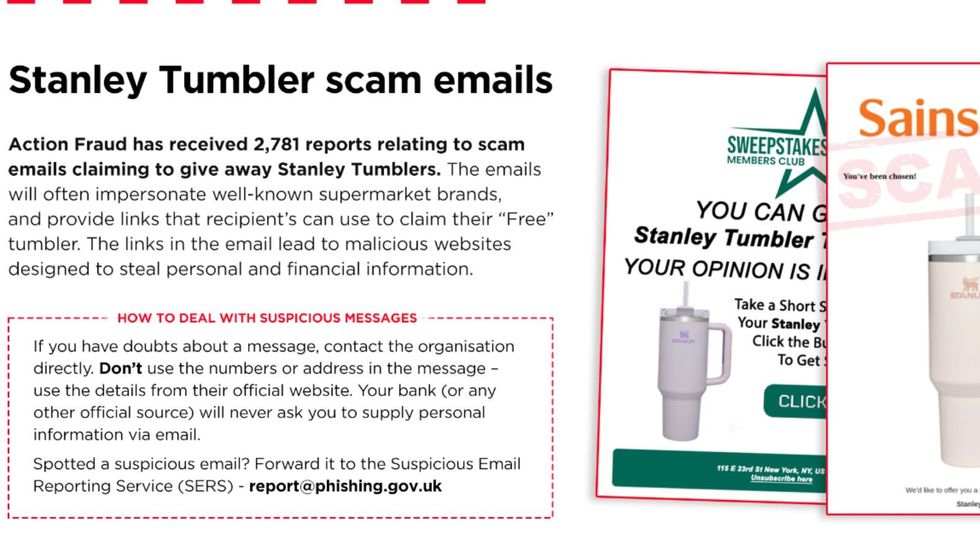Scammers are trying to steal personal details and financial information by posing as well-known brands and supermarkets
Don't Miss
Most Read
Trending on GB News
Sainsbury’s shoppers are being urged to watch out for a convincing scam email which could see customers lose their hard-earned cash.
Action Fraud is warning the public about the danger posed by the recent trend of fake Stanley Tumbler scam emails.
So far, the fraudster watchdog has received 2,781 reports of scam emails claiming to offer a free tumbler over the last couple of months.
This appliance has become popular in recent years for keeping people’s beverages ice cold for hours on end.
Do you have a money story you’d like to share? Get in touch by emailing money@gbnews.uk.

Sainsbury's shoppers are being told to look out for 'suspicious emails'
GETTY
However, it appears this popularity is being taken advantage of by scammers with fake deals being advertised to shoppers.
On X, formerly Twitter, Action Fraud alerted the public to the rise in scam emails and offered advice on what people can look out for.
Criminals usually impersonate well-known brands and supermarkets such as Sainsbury’s, among others.
These fraudulent messages will include links, encouraging recipients to click to claim their very own “free” tumbler from the brand.
However, the links actually take victims to a website which allows scammers to harvest personal and financial information.
Action Fraud said: “If you have doubts about a message, contact the organisation directly. Don’t use the numbers or address in the message – use the details from their official website.
“Your bank (or any other official source) will never ask you to supply personal information via email.
“Spotted a suspicious email? Forward it to the Suspicious Email Reporting Service (SERS) – report@phishing.gov.uk.”
LATEST DEVELOPMENTS:

The scam watchdog issued a warning about Stanley Tumbler scam emails
ACTION FRAUD/TWIITTER/X
When an email of this nature is reported, the National Cyber Security Centre (NCSC) will analyse it and any websites it links to.
If the authorities discover any activity they believe constitutes a scam, they may choose to block the address the email came from.
Furthermore, the NCSC could work with hosting companies to remove links to malicious websites and raise awareness of commonly reported suspicious emails and methods used.
A Sainsbury’s spokesperson told GB News: ““Customers should always be mindful of phishing scams. This message is not from Sainsbury’s and we advise customers delete it and report it to us via our website.”









